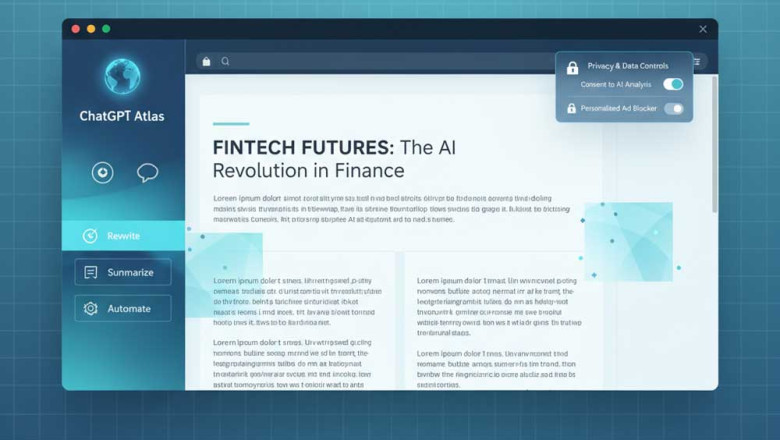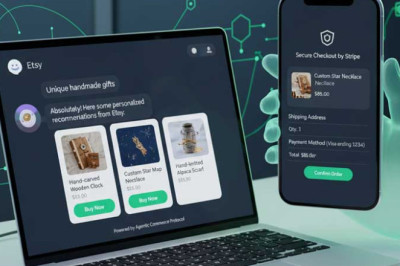
views
OpenAI has launched a new web browser called ChatGPT Atlas, powered by an integrated ChatGPT experience. Atlas is initially available on macOS and is rolling out globally, with announcements and guided download pages published in mid to late October 2025. The browser includes a ChatGPT sidebar for interaction, memory and task assistance, and built-in AI capabilities to assist with browsing, writing, and automation tasks, with broader platform support (Windows, iOS, Android) promised in the near term.
Overview of what’s new
-
AI-powered browsing: ChatGPT is embedded in the browsing experience, enabling natural-language queries, content rewriting, and task automation directly within the browser.
-
Memory and personalization: Atlas includes browser memory to recall prior searches and interactions, aiming to streamline repetitive tasks.
-
Cross-device roadmap: Initial availability on macOS, with plans for Windows, iOS, and Android in the pipeline, expanding reach across ecosystems.
-
Privacy considerations: As with any AI-integrated browser, there are ongoing discussions about data usage and browsing history being accessible to the provider; users should review privacy settings and permissions during setup.
What to expect if you want to try Atlas
-
Access: Download Atlas from the official site (the provider’s download page is branded for Atlas and typically offers macOS installers). Follow on-screen prompts to install and launch Atlas.
-
Signing in: If required, sign in with your OpenAI account to access personalized features and memory.
-
Features to explore: ChatGPT sidebar interactions, content rewriting, code assistance, shopping/automation tasks, and memory-enabled recall of previous sessions to speed up workflows.
-
Limitations and caveats: Early access may include platform-specific quirks, occasional privacy prompts, and evolving feature sets; performance and integration quality can improve with updates.
Tips for evaluating Atlas
-
Compare browsing experience: Assess how Atlas’ AI-assisted browsing compares with traditional browsers on speed, usefulness of the AI sidebar, and accuracy of task automation.
-
Privacy settings: Review what data Atlas collects (browsing history, interactions, etc.) and adjust permissions to balance convenience with privacy.
-
Ecosystem considerations: If using non-macOS devices, watch for the release timeline for Windows, iOS, and Android builds to plan cross-device use.
- https://searchengineland.com/openai-launches-a-web-browser-chatgpt-atlas-463623
- https://www.usatoday.com/story/tech/2025/10/22/open-ai-launches-chatgpt-atlas-web-browser/86833766007/
- https://openai.com/index/introducing-chatgpt-atlas/
- https://apnews.com/article/openai-atlas-web-browser-chatgpt-google-ai-f59edaa239aebe26fc5a4a27291d717a
- https://www.cnn.com/2025/10/22/tech/openai-chatgpt-atlas-browser-google-chrome-ai
- https://mashable.com/article/openai-debuts-chatgpt-atlas-browser-how-to-try
- https://www.tomsguide.com/news/live/openai-browser-launch
- https://www.cnbc.com/2025/10/21/openai-browser-alphabet-stock.html
- https://community.openai.com/t/livestream-today-openai-browser-chatgpt-atlas-10-am-pt/1363324
- https://www.reddit.com/r/ChatGPT/comments/1ochtsq/confirmed_openai_is_launching_a_new_browser_today/
- https://www.youtube.com/watch?v=UkRN4IzXp8E




















Comments
0 comment